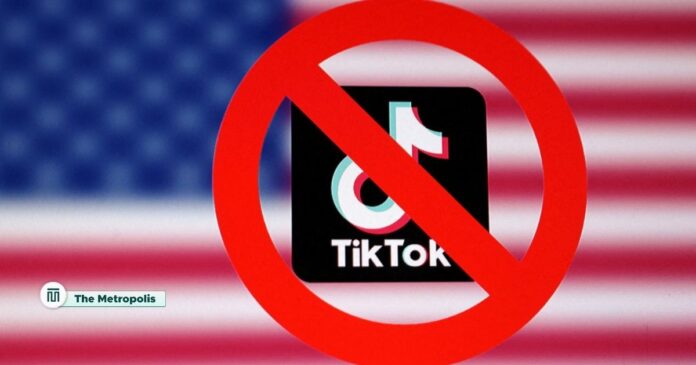The U.S. Supreme Court on Friday declined to intervene on behalf of TikTok, allowing a law to take effect that mandates the app be sold by its Chinese parent company ByteDance or face a ban in the United States starting Sunday. The decision deals a significant blow to the widely used platform, which has approximately 170 million American users.
In a unanimous decision, the justices upheld the law, which was passed with strong bipartisan support in Congress and signed by President Joe Biden last year, ruling that it does not violate the First Amendment’s protections of free speech. The decision affirms a lower court ruling that had rejected challenges from TikTok, ByteDance, and several users.
“While TikTok provides an important platform for expression and community engagement for millions of Americans, Congress has determined that divestiture is essential to address serious national security concerns related to the platform’s data collection practices and its ties to a foreign adversary,” the court stated in its unsigned opinion. The justices also concluded that the law does not infringe on the petitioners’ First Amendment rights.
The case weighed national security concerns against free speech in the context of modern social media. The court emphasized the U.S. government’s evidence showing China’s long-standing efforts to gather structured datasets on Americans to aid intelligence operations, describing these concerns as well-founded.
White House Press Secretary Karine Jean-Pierre reiterated President Biden’s stance that TikTok should remain available to American users under ownership that addresses the identified security risks. However, she noted that implementing the law would fall to the next administration.
TikTok, which is set to cease operations in the U.S. on Sunday without a last-minute resolution, did not immediately comment. The Supreme Court moved swiftly, having heard arguments on January 10, just days before the law’s enforcement deadline.
TikTok, used by around 270 million Americans—about half the U.S. population—has been a focal point in the broader rivalry between the U.S. and China. Concerns over its Chinese ownership have fueled debates in Washington, especially amid escalating trade tensions between the two nations.
The Biden administration has argued that the law targets the app’s foreign ownership, not its content, emphasizing that TikTok could continue operating if it separates from Chinese control. During court proceedings, Justice Department lawyer Elizabeth Prelogar warned that TikTok’s data could be exploited by China for espionage, recruitment, or covert influence operations. She argued that the app’s vast data troves represent a significant threat to U.S. security.
TikTok and ByteDance, along with some content creators, had challenged the law after a December ruling from the U.S. Court of Appeals for the District of Columbia Circuit upheld its constitutionality. The legal challenge also highlighted concerns about the potential impact on free expression and economic activity.
Former President Donald Trump, set to begin his second term on Monday, has shifted his position on TikTok since his first administration when he supported banning the platform. Trump has recently expressed support for the app, citing its role in engaging younger voters during the 2024 election. However, many Republican lawmakers remain staunchly in favor of the ban.
Incoming National Security Adviser Mike Waltz has suggested the new administration could work to preserve TikTok under American ownership. Senate Democratic leader Chuck Schumer also advocated for more time to finalize a divestiture deal to protect both TikTok’s operations and national security.
TikTok CEO Shou Zi Chew is expected to attend Trump’s inauguration on Monday, reflecting the platform’s ongoing efforts to navigate the evolving political landscape.
TikTok has maintained that the law threatens free speech rights for itself, its users, and all Americans, warning of the broader implications for advertisers, creators, and its 7,000 U.S. employees. Noel Francisco, TikTok’s lawyer, argued before the Supreme Court that the app is a critical platform for speech in America and suggested the government’s real aim is to suppress free expression by targeting fears of Chinese misinformation.
Under the law, services for TikTok and similar apps controlled by foreign adversaries will be barred from distribution via app stores like Apple and Google, effectively preventing their use in the U.S. without divestiture.



